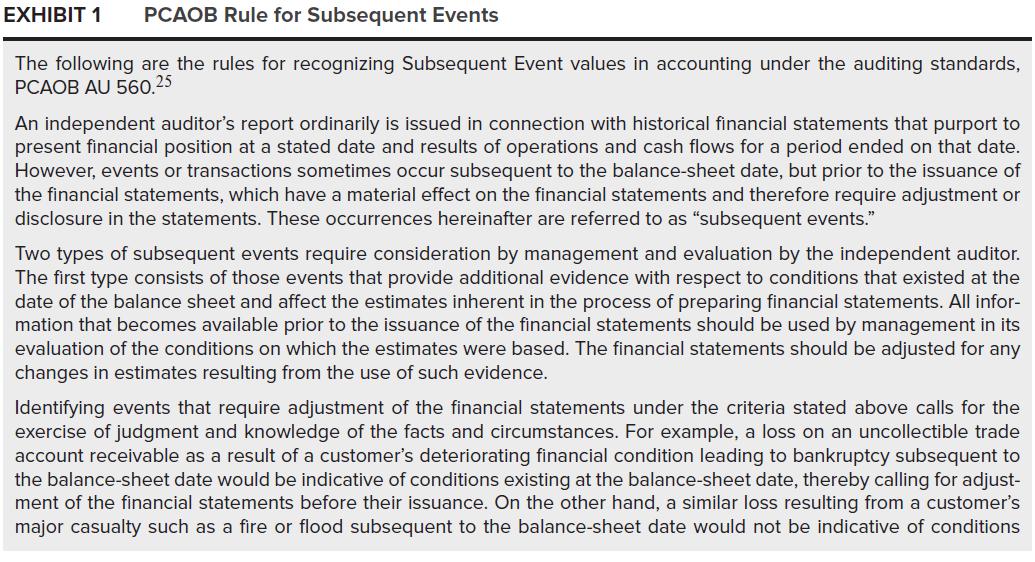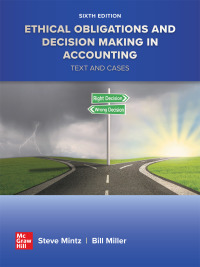Joe Kang is an owner and audit partner of Han, Kang & Lee, LLC. As the audit
Question:
Joe Kang is an owner and audit partner of Han, Kang & Lee, LLC. As the audit of Frost Systems was reaching its concluding stages on January 15, 2022, Kang met with Kate Boller, the CFO, to discuss the inventory valuation of one of its highly valued inventory products as of the balance sheet date, December 31, 2021. She was concerned because the January 31, 2022, financial statement issuance date was coming soon. Kang told Boller that a write-down of 20 percent had to be made because the net realizable value of the inventory on December 31 was 20 percent less than the original cost recorded on its books. That meant the earnings for the year would be reduced by $2 million and the client would show a loss for the year. In a heated exchange, Boller demanded Kang use the value now estimated on January 15, 2022, which reflects a full recovery of the “proposed” 20 percent write-down. Boller reminded Kang that the financial statements could be adjusted for “subsequent events” under accounting standards and the inventory valuation matter was one such occasion. Besides, Boller said, the previous auditors had allowed her to do a similar thing.
Exhibit 1 provides an overview of the standards for recording subsequent events.


Kang was under a great deal of pressure from the other two partners of the firm to keep Boller happy. It seems the firm was about to find out if its bid to provide consulting services for Frost Systems was accepted. Kang knew that the revenue from these arrangements could turn out to be twice the audit fees. Kang called a meeting of the other partners. He was concerned that the final vote would be 2-1 to accept the client’s interpretation of the accounting rules and record the inventory value estimated on January 15, 2022.
Questions
1. Did Boller apply the correct interpretation of PCAOB rules for subsequent events? Explain.
2. Assume the consulting services are permissible under SOX and the AICPA rules of conduct, explain what safeguards should exist to mitigate any threats to independence.
3. Put yourself in Kang’s position. You are preparing for the meeting with the other two partners. Consider the following in crafting an outline of points you may have to respond to.
What are the main arguments you are trying to counter? That is, what are the reasons and rationalizations you need to address?
What is at stake for the key parties, including those who disagree with you?
What levers can you use to influence those who disagree with you?
What is your most powerful and persuasive response to the reasons and rationalizations you may need to address? To whom should the argument be made? When and in what context?
Step by Step Answer:

Ethical Obligations And Decision Making In Accounting Text And Cases
ISBN: 9781264135943
6th Edition
Authors: Steven Mintz





